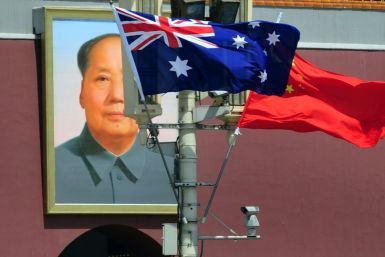Australian stocks close flat on thin holiday trade
The Australian share market emerged from the Christmas trading break to close flat.
Amid thin holiday volumes, mining stocks fell in response to China's weekend interest rate rise.
The benchmark S&P/ASX200 index closed 2.1 points, or 0.04 per cent, lower at 4,775.2 points, while the broader All Ordinaries index rose 3.3 points, or 0.07 per cent, to 4,871.6 points.
On the ASX 24, the March share price index futures contract was down nine points at 4,775 points, with about 9,500 contracts traded.
Shares in BHP Billiton closed down 59 cents at $45.45 while Rio Tinto fell 88 cents to $85.48.
Gold producer Newcrest was up 98 cents, or 2.46 per cent, at $40.80.
This followed news that two of its miners in Indonesia had been rescued after a rockslide 10 days ago.
The big banks were mostly stronger, with Commonwealth Bank up 16 cents at $51.27, ANZ rising one cent to $23.73, Westpac gaining six cents to $22.71 and Macquarie Group flat at $37.24.
National Australia Bank bucked the trend, falling eight cents to $24.02.
Shares in Tower Australia Group Ltd jumped 41.8 per cent to $3.87 after directors recommended shareholders accept Dai-ichi Life Insurance Company's $1.2 billion takeover offer.
A decision by China to cut its quota for rare earths exports led to a spike in the share prices of Australian miners of the commodity, used mostly in electronic products.
Lynas Corp rose 17.5 cents, or 10.8 per cent, to $1.795.
Alkane Resources was up 7.5 cents to 87.5 cents, Arafura Resources gained 13.5 cents to $1.355 and Greenland Minerals and Energy was up 12 cents at $1.08.
Leighton Holdings was up 17 cents at $31.35 after selling 35 per cent of its Indian business to Indian conglomerate Welspun Corp for around $US104 million.
Australian energy producers were mostly lower despite rising oil prices, with Woodside down 11 cents at $42.80 and Oil Search falling two cents to $7.11.
Santos declined eight cents to $13.18 and Origin Energy was seven cents lower at $16.92.
Media giant News Corp fell more 35 cents, or 2.1 per cent, to $16.20, while its non-voting scrip was down 39 cents at $14.50.
Retailers were mixed, as investors digested the impact of Christmas shopping on bottom lines.
Coles owner Wesfarmers fell 17 cents to $32.23 while rival Woolworths was up 20 cents at $27.10.
Myer was flat at $3.56 and David Jones was steady at $4.49, while Harvey Norman dropped three cents to $2.95.
The top-rising stock on the ASX 200 was Tower Australia with its 41.8 per cent gain.
It was followed by Lynas Corporation, which rose 10.8 per cent and Medusa Mining, which appreciated five per cent.
ING Office Fund fell the most among the top 200, losing two cents, or 3.5 per cent, to 54.5 cents.
It was followed by Ardent Leisure Group's 2.5 cent, or 2.4 per cent, decline to $1.02, then by Charter Hall Retail, which fell 2.3 per cent, at $2.96.
Preliminary market turnover was 1.76 billion shares worth $2.58 billion, with 638 stocks up, 431 down and 358 unchanged.
The Australian dollar gained in Asia trade Wednesday, moving well past parity with the U.S. dollar.
In a light volume session after a four-day holiday in Australia, the country's currency pushed near its highest point of the year.
Helping the currency was a rebound in U.S. stocks overnight that continued into the Asia session, with equities performing well across the region in a sign of improved risk tolerance.
With little economic data to drive action, much of the discussion concentrated on a disappointing reading of the U.S. housing market that had weighed on sentiment and the Australian dollar.
Traders overseas shook off an initial slide on that report, with market participants in Asia doing the same.
Still, with another holiday set for the end of the week, few were trading with much conviction.
The Australian dollar traded at $1.0105, up from $1.0031 late Friday.
The currency reached a high of $1.0153 in New York trading, just below its 2010 high of $1.0182 hit in October.
On a technical basis, the trader pinpointed support at $1.0050 and resistance at $1.0135.
Against the Japanese yen, the Australian dollar traded at 83.115, from 83.32.
More from IBT Markets:
Subscribe to get this delivered to your inbox daily
Follow us on Twitter.
Follow us on Facebook.






